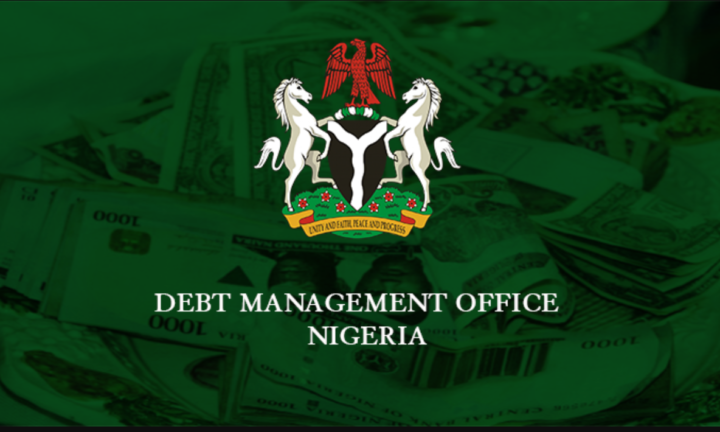The Federal Government of Nigeria has successfully raised N136 billion through the issuance of medium-term bonds as part of its domestic borrowing strategy to finance the 2025 budget and support ongoing infrastructure development projects. The Debt Management Office (DMO), which oversees the issuance and management of the country’s debt instruments, confirmed that the latest bond auction attracted strong participation from both local and foreign investors, underscoring confidence in the Nigerian capital market despite global economic uncertainties.
According to market reports, the bonds were issued across multiple tenors, with investors showing high demand for maturities in the five, ten, and twenty-year segments. This reflects the appetite for relatively longer-dated instruments by institutional investors seeking stable returns. The DMO revealed that the auction was oversubscribed, with bids exceeding the amount initially offered, a development that enabled the government to raise more funds than projected while maintaining competitive interest rates.

Analysts attribute the strong participation to recent reforms in Nigeria’s fiscal and monetary policies, which have improved investor sentiment. Efforts by the Central Bank of Nigeria (CBN) to stabilize the foreign exchange market, manage inflation, and enhance transparency in financial operations have helped improve market confidence. Additionally, the government’s ongoing infrastructure projects and revenue diversification plans are seen as positives by investors who believe the country’s economic fundamentals remain promising despite prevailing challenges.
The funds raised from the bond issuance are expected to be channeled into critical sectors such as transportation, energy, education, and healthcare. The government has repeatedly emphasized its commitment to using domestic borrowing strategically to finance developmental projects while ensuring debt sustainability. Officials have assured that Nigeria’s debt-to-GDP ratio remains within safe limits compared to many emerging markets, though they acknowledge the need to boost revenue generation to reduce reliance on borrowing.
Market experts note that the medium-term bond issuance also plays a crucial role in deepening Nigeria’s domestic debt market. By providing long-term instruments, the government helps establish a benchmark yield curve that supports the pricing of corporate bonds and other private-sector debt securities. This, in turn, enhances liquidity and broadens the investment landscape, which is essential for attracting more capital inflows into the country.
The DMO highlighted that the auction outcome aligns with its 2025 borrowing plan, which includes a mix of domestic and external financing sources. The domestic component is considered critical for minimizing exposure to foreign exchange risks while also fostering the development of the local financial markets. Recent moves to improve transparency in debt reporting and active engagement with investors have further strengthened Nigeria’s position in the fixed-income market.
Financial analysts have pointed out that while the government continues to rely on debt issuance to meet budgetary shortfalls, it must also intensify efforts to boost revenue collection. The implementation of ongoing tax reforms, diversification of exports, and improvement in oil production are seen as key strategies for reducing fiscal deficits over the medium to long term. Moreover, prudent debt management remains vital to avoid excessive debt servicing burdens, which could crowd out expenditure on social and economic infrastructure.
The successful allotment of N136 billion in medium-term bonds reflects both investor confidence and the resilience of Nigeria’s financial market amid global uncertainties. With inflationary pressures still a concern, investors are attracted to government securities that offer relatively attractive yields compared to other investment options. The recent reforms in the financial markets, including efforts to enhance monetary policy coordination, have played a significant role in bolstering the credibility of Nigeria’s debt instruments.
Observers also point out that Nigeria’s domestic debt program has historically been well received due to its structured and transparent nature. Regular bond auctions allow investors to plan and provide a predictable avenue for the government to raise needed funds. The DMO’s strategy of issuing bonds with different maturities caters to diverse investor preferences, ranging from pension funds to asset managers and banks.
As the Nigerian economy continues its recovery path, the proceeds from the bond issuance are expected to play a key role in funding priority projects that can drive growth, create jobs, and improve living standards. The government has reiterated its commitment to accountability and efficiency in the utilization of borrowed funds to ensure that such resources contribute meaningfully to economic transformation.
In summary, the allotment of N136 billion in medium-term bonds represents another significant milestone in Nigeria’s fiscal management strategy. It underscores the importance of leveraging the domestic debt market to meet financing needs while maintaining investor confidence through transparent and market-friendly policies. Going forward, the sustainability of this borrowing approach will depend on the government’s ability to expand its revenue base and maintain macroeconomic stability, ensuring that the country’s debt profile remains within manageable levels while fueling development and growth.
Support InfoStride News' Credible Journalism: Only credible journalism can guarantee a fair, accountable and transparent society, including democracy and government. It involves a lot of efforts and money. We need your support. Click here to Donate
